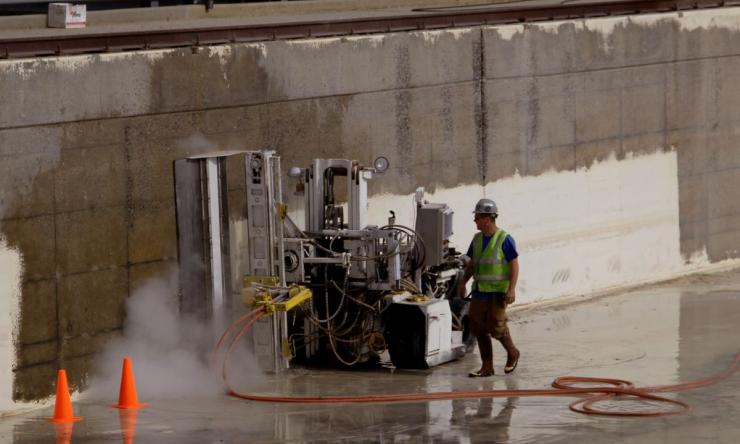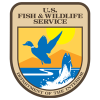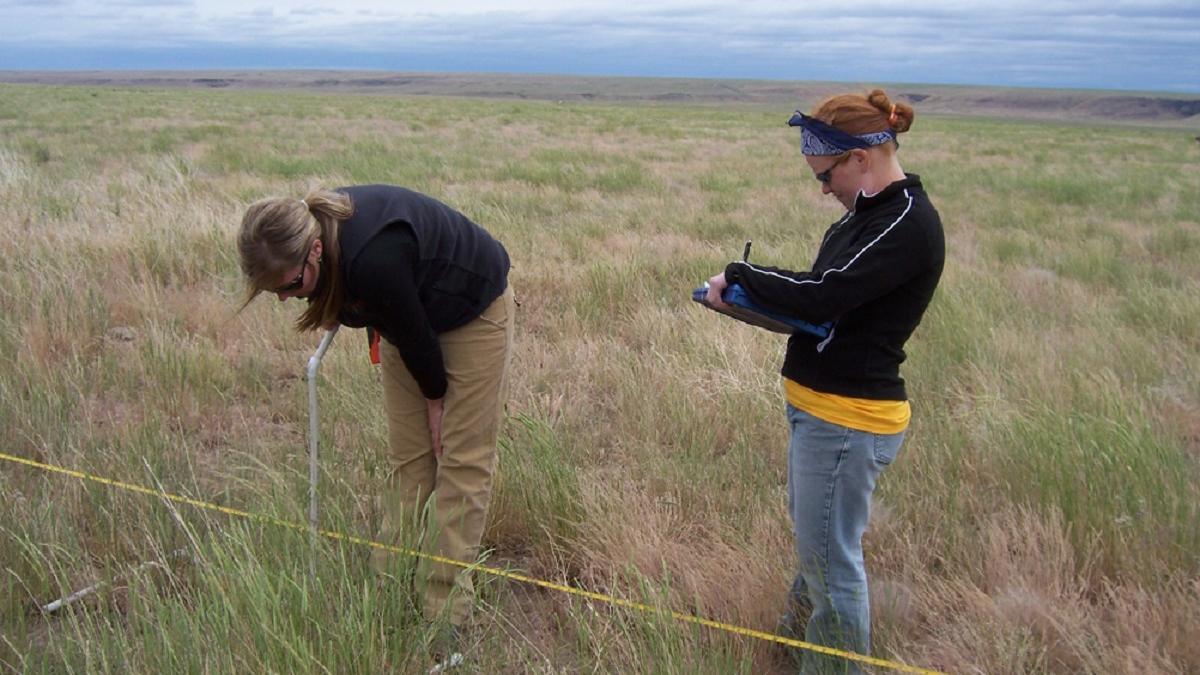
Rangeland Management
Position Overview
Rangeland management specialists at the Department of the Interior analyze and protect natural resources, develop programs and standards for rangeland use and preservation, and advise officials and landowners on rangeland management practices.
This position is represented at the following bureaus
Candidate Description
The ideal candidate can apply their professional knowledge of rangeland management principles and concepts to effectively solve problems or modify strategies that affect a wide array of ecological processes. This individual should be an effective communicator and be able to build consensus among stakeholders with differing or conflicting interests.
Work Environment
Depending on the position, work may be performed indoors in an office setting or outdoors, potentially in remote areas or difficult terrain.
Minimum Education Requirements
Please see the Individual Occupation Requirements and the Professional and Scientific Positions Group Qualification Standard on the OPM websites.
Career Level Requirements
Responsibilities by Level
Entry:
- Reviews grazing permit applications
- Processes protests and appeals
- Completes training and developmental assignments to build and refine knowledge of range management practices
Mid:
- Provides input into interdisciplinary reports
- Plans, manages, produces, and implements land allotment evaluations
- Reviews documents and plans to ensure compliance (e.g., National Environmental Protection Act)
Journey:
- Serves as lead author/editor on land allotment evaluation documents
- Evaluates range permit applications to ensure impacts to range and grassland ecosystem are mitigated
- Plans and designs range improvements and vegetation treatments or vegetation management plans
- Coordinates and negotiates multiple use agreements with external stakeholders
Strengths by Level
-
AccountabilityHolds self and others accountable for measurable high-quality, timely, and cost-effective results. Determines objectives, sets priorities, and delegates work. Accepts responsibility for mistakes. Complies with established control systems and rules.Show Tool TipEntry 5-7Mid 9-11Journey 12-13
-
Attention to DetailIs thorough when performing work and conscientious about attending to detail.Show Tool TipEntry 5-7Mid 9-11Journey 12-13
-
ComplianceKnowledge of procedures for assessing, evaluating, and monitoring programs or projects for compliance with Federal laws, regulations, and guidance.Show Tool TipEntry 5-7Mid 9-11Journey 12-13
-
Creative ThinkingUses imagination to develop new insights into situations and applies innovative solutions to problems; designs new methods where established methods and procedures are inapplicable or are unavailable.Show Tool TipEntry 5-7Mid 9-11Journey 12-13
-
Customer ServiceWorks with clients and customers (that is, any individuals who use or receive the services or products that your work unit produces, including the general public, individuals who work in the agency, other agencies, or organizations outside the Government) to assess their needs, provide information or assistance, resolve their problems, or satisfy their expectations; knows about available products and services; is committed to providing quality products and services.Show Tool TipEntry 5-7Mid 9-11Journey 12-13
-
EntrepreneurshipPositions the organization for future success by identifying new opportunities; builds the organization by developing or improving products or services. Takes calculated risks to accomplish organizational objectives.Show Tool TipEntry 5-7Mid 9-11Journey 12-13
-
FlexibilityIs open to change and new information; adapts behavior or work methods in response to new information, changing conditions, or unexpected obstacles; effectively deals with ambiguity.Show Tool TipEntry 5-7Mid 9-11Journey 12-13
-
Influencing/NegotiatingPersuades others to accept recommendations, cooperate, or change their behavior; works with others towards an agreement; negotiates to find mutually acceptable solutions.Show Tool TipEntry 5-7Mid 9-11Journey 12-13
-
Interpersonal SkillsTreats others with courtesy, sensitivity, and respect. Considers and responds appropriately to the needs and feelings of different people in different situations.Show Tool TipEntry 5-7Mid 9-11Journey 12-13
-
Oral CommunicationExpresses information (for example, ideas or facts) to individuals or groups effectively, taking into account the audience and nature of the information (for example, technical, sensitive, controversial); makes clear and convincing oral presentations; listens to others, attends to nonverbal cues, and responds appropriately.Show Tool TipEntry 5-7Mid 9-11Journey 12-13
-
Organizational AwarenessKnows the organization's mission and functions, and how its social, political, and technological systems work and operates effectively within them; this includes the programs, policies, procedures, rules, and regulations of the organization.Show Tool TipEntry 5-7Mid 9-11Journey 12-13
-
PartneringDevelops networks and builds alliances; collaborates across boundaries to build strategic relationships and achieve common goals.Show Tool TipEntry 5-7Mid 9-11Journey 12-13
-
Problem SolvingIdentifies problems; determines accuracy and relevance of information; uses sound judgment to generate and evaluate alternatives, and to make recommendations.Show Tool TipEntry 5-7Mid 9-11Journey 12-13
-
Project ManagementKnowledge of the principles, methods, or tools for developing, scheduling, coordinating, and managing projects and resources, including monitoring and inspecting costs, work, and contractor performance.Show Tool TipEntry 5-7Mid 9-11Journey 12-13
-
ReasoningIdentifies rules, principles, or relationships that explain facts, data, or other information; analyzes information and makes correct inferences or draws accurate conclusions.Show Tool TipEntry 5-7Mid 9-11Journey 12-13
-
TeamworkEncourages and facilitates cooperation, pride, trust, and group identity; fosters commitment and team spirit; works with others to achieve goals.Show Tool TipEntry 5-7Mid 9-11Journey 12-13
-
Technical CompetenceUses knowledge that is acquired through formal training or extensive on-the-job experience to perform one's job; works with, understands, and evaluates technical information related to the job; advises others on technical issues.Show Tool TipEntry 5-7Mid 9-11Journey 12-13
-
WritingRecognizes or uses correct English grammar, punctuation, and spelling; communicates information (for example, facts, ideas, or messages) in a succinct and organized manner; produces written information, which may include technical material, that is appropriate for the intended audience.Show Tool TipEntry 5-7Mid 9-11Journey 12-13
Common Pathways
Candidates who made this career change most commonly held these occupations...
Range Technician
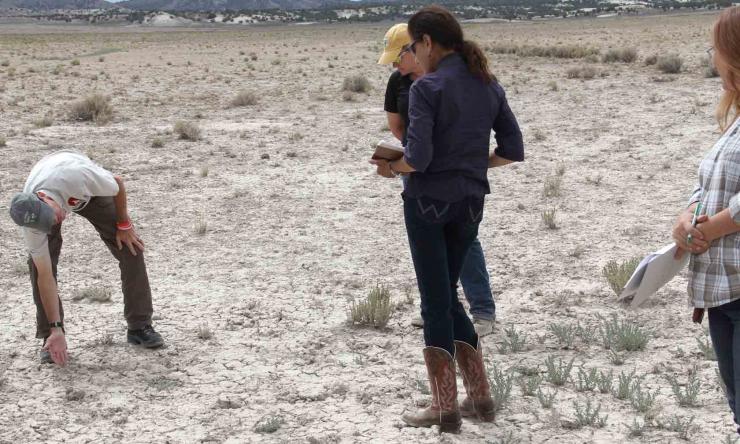
Natural Resources Management and Biological Sciences
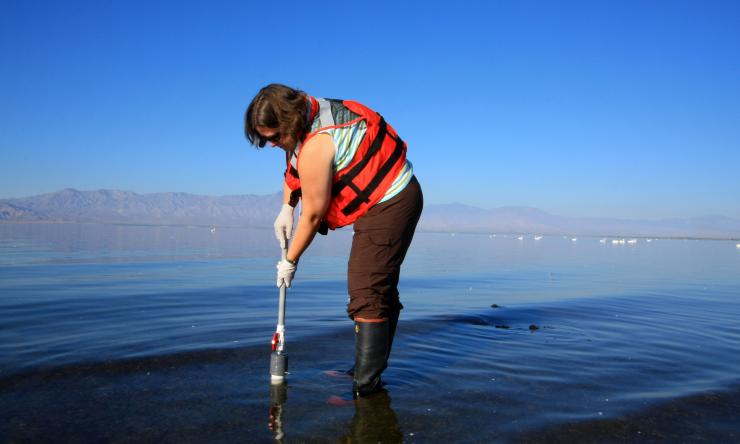
Engineering Technician
